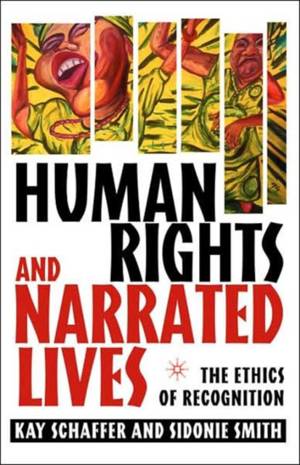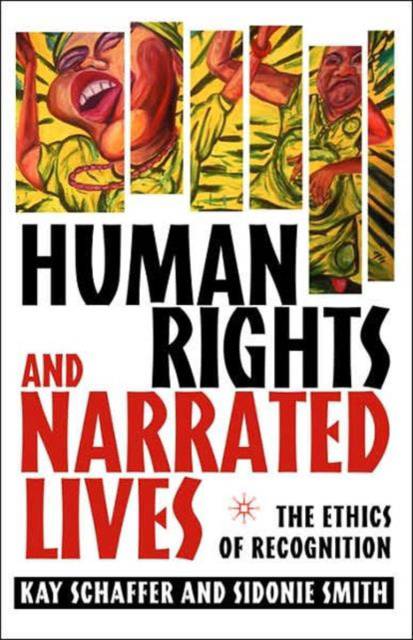
- Afhalen na 1 uur in een winkel met voorraad
- Gratis thuislevering in België vanaf € 30
- Ruim aanbod met 7 miljoen producten
- Afhalen na 1 uur in een winkel met voorraad
- Gratis thuislevering in België vanaf € 30
- Ruim aanbod met 7 miljoen producten
Zoeken
€ 183,45
+ 366 punten
Uitvoering
Omschrijving
Personal narratives have become one of the most potent vehicles for advancing human rights claims across the world. These two contemporary domains, personal narrative and human rights, literature and international politics, are commonly understood to operate on separate planes. This study however, examines the ways these intersecting realms unfold and are enfolded in one another in ways both productive of and problematic for the achievement of social justice. Human Rights and Narrated Lives explores what happens when autobiographical narratives are produced, received, and circulated in the field of human rights. It asks how personal narratives emerge in local settings; how international rights discourse enables and constrains individual and collective subjectivities in narration; how personal narratives circulate and take on new meanings in new contexts; and how and under what conditions they feed into, affect, and are affected by the reorganizations of politics in the post cold war, postcolonial, globalizing human rights contexts. To explore these intersections, the authors attend the production, circulation, reception, and affective currents of stories in action across local, national, transnational, and global arenas. They do so by looking at five case studies: in the context of the Truth and Reconciliation processes in South Africa; the National Inquiry into the Forced Removal of Indigenous Children from their Families in Australia; activism on behalf of former 'comfort women' from South/East Asia; U.S. prison activism; and democratic reforms in the aftermath of the Tiananmen Square Massacre in China.
Specificaties
Betrokkenen
- Auteur(s):
- Uitgeverij:
Inhoud
- Aantal bladzijden:
- 304
- Taal:
- Engels
Eigenschappen
- Productcode (EAN):
- 9781403964953
- Verschijningsdatum:
- 16/09/2004
- Uitvoering:
- Paperback
- Formaat:
- Trade paperback (VS)
- Afmetingen:
- 138 mm x 210 mm
- Gewicht:
- 367 g

Alleen bij Standaard Boekhandel
+ 366 punten op je klantenkaart van Standaard Boekhandel
Beoordelingen
We publiceren alleen reviews die voldoen aan de voorwaarden voor reviews. Bekijk onze voorwaarden voor reviews.







